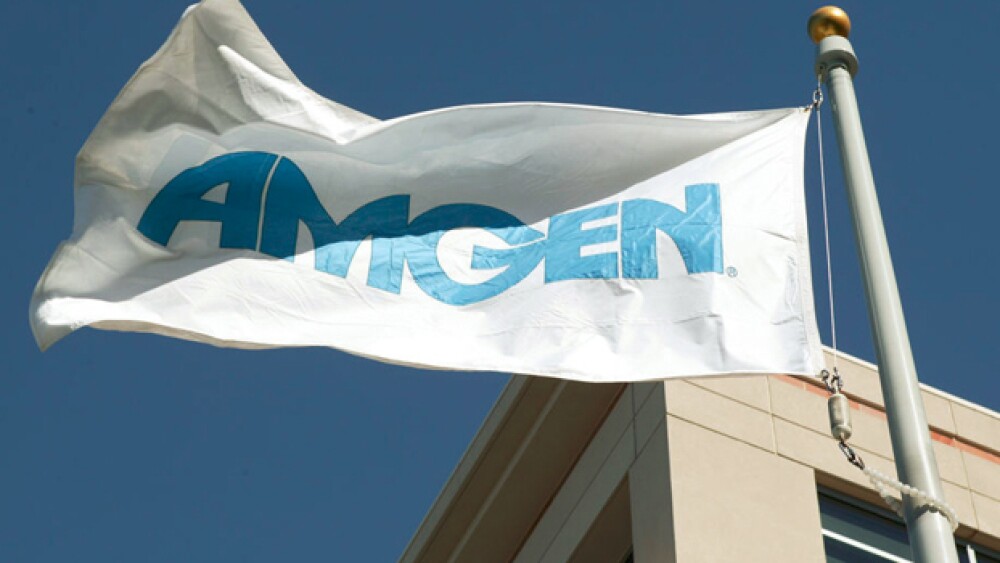With the June approval of Mylan’s Fulphila (pegfilgrastim-jmbd), a biosimilar to Amgen’s Neulasta (pegfilgrastim), the company is facing a potential revenue problem as the Mylan drug is expected to cut into Amgen’s market share.
With the June approval of Mylan’s Fulphila (pegfilgrastim-jmbd), a biosimilar to Amgen’s Neulasta (pegfilgrastim), the Thousand Oaks, Calif.-based company is facing a potential revenue problem as the Mylan drug is expected to cut into Amgen’s market share.
Last year Neulasta pulled in about $4.53 billion for Amgen. That was more than one-fifth of its total revenue for the year. Sales for Mylan’s Fulphila are not pegged to take a huge chunk of revenue away from Amgen immediately, but by 2022 analysts predict the biosimilar will draw peak sales of $554 million. Other challenges to Neulasta are coming though, with multiple developers gearing up for possible approval.
So what does Amgen need to do to protect its revenue stream? A number of industry watchers and analysts believe that the answer to the problem is through the company flexing its M&A muscle. Ronny Gal, an analyst with Sanford Bernstein, points to Alexion Pharmaceuticals as a potential target. In a note to clients issued Monday, Gal said that Alexion might be the right size for Amgen to acquire, said FiercePharma. In his note, Gal said that Amgen will need to take aim at a company with more than $1 billion on its top line in order to account for the anticipated $2 billion loss of revenue from challenges to Neulasta and other drugs in its pipeline.
Alexion, Gal said, according to FiercePharma, is “more manageable size-wise” and also is “big enough to offset a decline.” Alexion has also seen several recent clinical successes. In June the company submitted a Marketing Authorization Application to the European Medicines Agency (EMA) for ALXN1210, the Company’s investigational long-acting C5 complement inhibitor, for the treatment of patients with paroxysmal nocturnal hemoglobinuria (PNH). That look to the EMA followed an April submission for approval to the U.S. Food and Drug Administration. ALXN1210 is looked upon as a successor to the blockbuster drug Soliris.
Not only is Alexion looking at a new marketable drug, the company also in June took a dive into developing a C6 complement inhibitor. Alexion and Complement Pharma forged an agreement to develop CP010, a humanized monoclonal antibody in preclinical development for neurodegenerative disorders. The company said C6 inhibition will prevent the formation of the destructive membrane attack complex (MAC), which is a complex of terminal complement proteins that mediate cellular injury following complement activation. Additionally, C6 inhibition has the potential to treat a variety of central nervous system disorders, Alexion said.
What Alexion has in the works is appealing for a possible buyer, but Gal cautioned against the notion that Amgen would be quick to pull the trigger on any deal.
Alexion has been pegged by analysts earlier this year as a potential takeover target, particularly with investigations into its marketing of Soliris and an activist investor that was considering pushing the company into placing itself up for sale. Last year Alexion admitted that unnamed members of its senior management team used “inappropriate business tactics” to market the drug. Investigations into the company sparked the resignation of the former CEO David Hallal, as well as Vikas Sinha, the company’s chief financial officer.





